Do you feel like your breast milk supply is running dry? Do you think you’ve done just about everything to squeeze out more milk? Are you thinking of giving up on breastfeeding? Before you do, let me stop you in your tracks. Are you aware that there are foods that increase breast milk production? But before we even talk about that, how often are you feeding your baby?
The most important thing to remember in boosting your breast milk supply is to feed often. I cannot emphasize that enough. When you are establishing your milk supply, forget about routines and feed your baby on demand (meaning, whenever they are hungry). Do not rush them when they are having their meal. They will let go when they’ve had enough. And then, do not forget to offer your other breast every time you feed.
It is really all about supply and demand. Your body will adjust to the amount of milk your baby needs. So the more often your baby sucks milk from your breast, the more milk is produced.
So if you’ve nursed as often as you can and your baby is latched correctly to your breasts, and you think you still need a boost, then yes, by all means, you can consider adding milk stimulating food to your diet.
What are Galactagogues?
Simply put, galactagogues are lactogenic food or milk stimulating food. Apart from eating a healthy balanced diet, adding these can help you increase your breast milk supply. It is better to avoid food that are fried and processed. This means that you should incorporate more greens, protein and fruits into your diet. You will also needs carbohydrates for energy. Breastfeeding will make you tired and hungry, considering that you will also have interrupted sleep (which may not even be much especially after you give birth). So please do yourself a favour and eat well. You should also be drinking up to keep yourself hydrated.
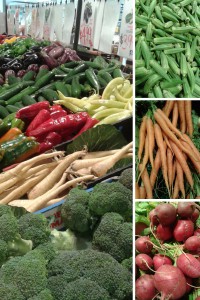 Vegetables and Legumes/ Beans
Vegetables and Legumes/ Beans
Vegetables are high in vitamins and minerals, and protect us from diseases. Most do not even eat the recommended quantity of vegetables. It’s really a good thing that there’s more and more focus on healthy eating nowadays. Based on the Eat for Health: Australian Dietary Guidelines, breastfeeding women should eat at least 7.5 servings of vegetables per day. One serving means eating any of the following:
- 1 cup green leafy or raw salad vegetables
- 1/2 cup cooked green or orange vegetables
- 1/2 medium sweet potato or other starchy vegetable
- 1 medium tomato, or
- 1/2 cup sweet corn
It will be good to include carrots, beetroot, sweet potatoes, and yam in your meals. Dark leafy greens like spinach, romaine lettuce, moringa (or malunggay) also help in lactation.
You can even make green drinks or smoothies because it’s easier to eat more vegetables that way. Spinach, kale, or romaine are great to use. I like mixing mine with fruits and chia seeds.
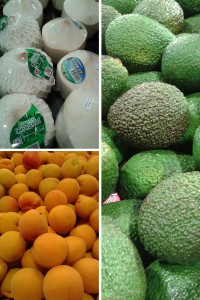 Fruits
Fruits
Fresh, whole fruits are always better than fruit juice due to added sweeteners (like sucrose or high fructose corn syrup). Apricots, green papaya, coconut, avocado, dates, and figs are a great addition to your diet. Breastfeeding women should have at least 2 servings of fruits per day. Just to give you an idea, one serving of fruits is:
- 1 medium apple, banana, orange, or pear
- 2 small apricots, kiwi, or plum
- 1 cup of diced or canned fruit (no added sugar)
- 30g dried fruit (occasionally), or
- 1/2 cup fruit juice with no added sugar (occasionally)
Whole Grains
This includes eating whole grains like brown rice, quinoa, barley, and oats. It provides more dietary fibre than refined grains. Breastfeeding women are recommended to have at least 9 servings of whole grains a day. A serving of whole grains means:
- 1 slice of bread
- 1/2 cup cooked rice, pasta, noodles, barley, or quinoa
- 1/2 cup cooked oatmeal
- 2/3 cup wheat cereal flakes, or
- 1/4 cup muesli
Oats and Oatmeal
Oatmeal is a healthy meal that you can have for breakfast. It helps lower bad cholesterol and it can make for a satisfying meal. If you eat if before exercising, it can even help you burn fat.
It can come as quick-cook, rolled, or steel-cut oats. Quick-cooking or instant oats have been pre-cooked, dried, and rolled. They are ready in about 2 minutes. Rolled or old-fashioned oats have been steamed and rolled. This takes a little longer to cook, around 5-10 minutes. Steel-cut oats are toasted and cut oat groats (oat kernels that have been removed from the husk). They take the longest time to cook, about 20-30 minutes. Whatever you choose, remember to buy oats that have no added sugar, flavourings, or preservatives.
I would recommend preparing oatmeal with lactogenic ingredients such as almond milk, and topping it with almond slivers, sunflower seeds, raisins, cinnamon, apricots, dates, and/ or figs. For variety, instead of cooking oatmeal in a microwave or stove, you can even prepare overnight refrigerated oats in mason jars.
You can also bake some yummy oatmeal cookies.
Lean Meat and Poultry, Fish, Eggs, Nuts and Seeds, and Legumes/Beans
To increase your milk supply, salmon is a great source of essential fatty acids like omega 3, 6, and 9. Chickpeas, lentils, peas, and beans are also good for you, as well as almonds, macadamia, cashews, chia seeds, sunflower seeds, and sesame seeds. You should have at least 3.5 servings per day. How much is one serving?
- 65g cooked lean red meat
- 80g cooked lean poultry
- 100g cooked fish fillet or 1 small can of fish
- 2 large eggs
- 1 cup cooked or canned legumes/beans with no added salt
- 170g tofu, or
- 30g nuts or seeds (no added salt)
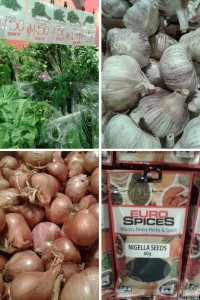 Herbs and Spices
Herbs and Spices
There are also a number of herbs and spices which help increase breast production. Before you take any of these herbal supplements, it is best to consult your doctor or lactation consultant. Instead of enjoying the benefits, it may be harmful if it is not taken as directed.
- Fenugreek – This can be taken as tea or in capsule form. Don’t use this if you have diabetes or asthma.
- Milk thistle – It is also used to detoxify and cleanse the liver. It is a common ingredient in nursing teas and can also be used with other herbs like fenugreek and fennel.
- Black nigella – You can take black seed in capsule form. Avoid this if you are allergic to black seeds.
- Fennel seeds – Use this as a tea or include it when you cook. It also helps in digestion and help prevent colic in small babies (use with fenugreek).
- Cumin seeds – It is a good source of iron especially after giving birth, and it helps in digestion.
- Cinnamon – You can mix cinnamon powder with oatmeal, smoothies, cookies, or even tea with honey.
- Garlic and Onion – Take this in moderation and check to see if your baby is bothered with it, especially if they have colic.
What Foods to Avoid?
While you should do your best to be hydrated, it is best to avoid alcohol while breastfeeding, especially during the first month. If you really want to have one drink, there is no need to pump and dump. The key is to plan ahead. On average, it takes 2 hours for your body to clear the alcohol. So since you already know your baby’s pattern, you can express milk ahead of time so you can feed that to your baby.
You should also refrain from large amounts of tea, coffee, and soda due to caffeine as it disrupts sleep.
As a final note, remember that it is very important that you eat right while you are breastfeeding. You should look after yourself and your baby. To find out more about the amount and kind of food we need to eat for good health, you can check out Eat for Health: Australian Dietary Guidelines.
If you have any questions or would like to share what food worked for you to increase your milk supply, please leave a comment. I would love to hear all about it!
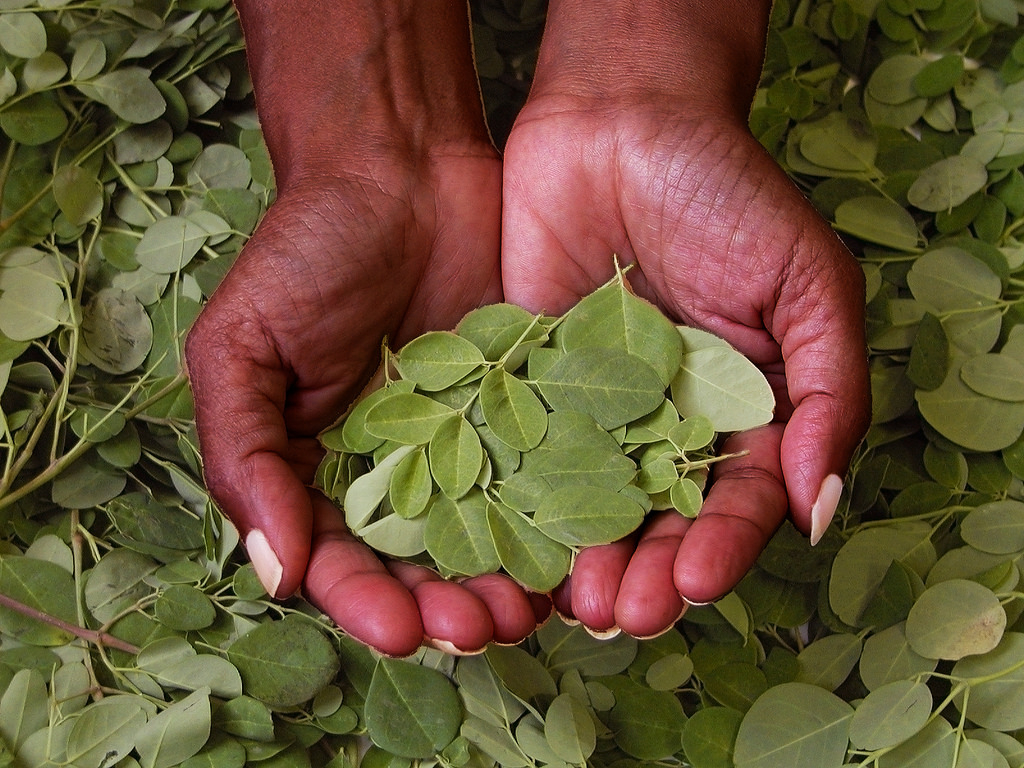
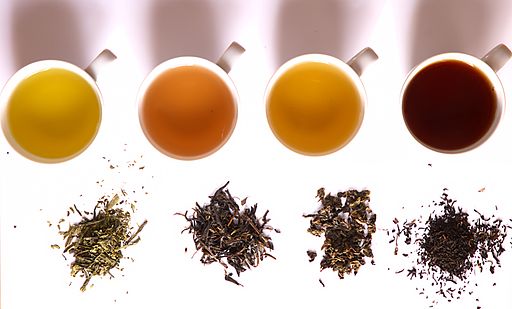
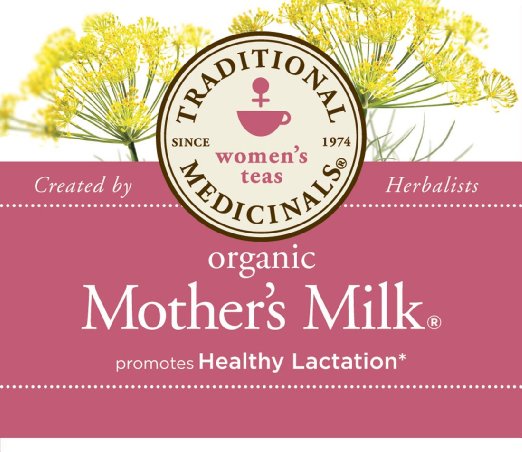
Raquel!
This is an awesome guide to increase breastfeeding supply. It now makes sense why I was not producing enough milk for my baby when he was born. We were back and forth an hour away while he was in NICU and I was very depressed with PPD and high anxiety, so it resulted in me not being able to eat very much.
When I was pregnant, I tried to keep a diet of healthy fish, lots of greens, carrots, and healthy fats like coconut oil. Caffeine I would try to only have once a day, but I was a working pharmacy tech at the time of my pregnancy and I had to have at least a little caffeine to keep me alert for 10 hour shifts.
I opted for organic coffee and teas for caffeine mostly, so I’m sure it didn’t affect me too bad. The most I’d have was two cups a day.
I’ll be bookmarking this for baby #2!
Thanks for sharing this, Heather! You’re right, you definitely shouldn’t forget to take care of yourself too. Take care.
I drank lots of nourishing infusions when I was pregnant and breastfeeding. Lots of red raspberry lead and nettle, to keep my mineral content up.
A nice chai tea with lots of fennel in it would be a tasty way to get some herbs into your diet. Fenugreek makes a yummy tea as well.
Do you know of any foods/herbs that will make your milk dry up?
Thanks for sharing this, Andrea. Nothing still beats feeding often, although supplements can indeed help to increase milk supply. Apart supplements like fenugreek and fennel, I’ve found that moringa can help promote healthy lactation as well.
As for decreasing milk supply, I understand that sage tea and a compress of cabbage leaves have played a part in mothers who are weaning.
Thanks for this article! I had such a hard time breastfeeding my first child. Latching issues, no milk, etc. that I gave up after 3 weeks. I am now pregnant again and hope that it will go better this time around.
I had no idea that there were certain foods that increase breast milk production. I am going to book mark this page to refer back to.
Thanks for all the great information.
Thanks Simone. First of all, congratulations on yet another little bundle of joy! While there are lactation food that can help boost milk supply, I would suggest focusing on getting the correct latch first. Here are also some breastfeeding tips to help you in the first 6 months. Take care!
I agree that breastfeeding often is the best way to ensure a good milk supply. Breastfeeding during the night really helps keep your milk supply up. Nutrition is so important, and having lots of water. I always drank a glass of water while I nursed.
I also think you need to be relaxed and stress-free. Don’t be worried that you aren’t getting anything done while you nurse, see it as an opportunity to sit. I loved taking a moment to sit and relax and nurse my baby.
Thanks Andrea! Being hydrated and eating right is indeed very important. Sometimes we forget this…
Definitely a great point in seeing breastfeeding as a time to relax with your baby. After all, we won’t be breastfeeding forever. Cheers!
Hi Raquel. I absolutely love your page. It looks very professional. I find this to be a very helpful article and will recommend this to my sister, who has a four month old baby boy. She has had some trouble while breast feeding and has been looking for tips on how to increase milk production!
Thanks for your help!
Thanks Cristina! Glad you find it helpful! Definitely, feel free to share this to your sister. I would love to help her boost her milk supply. It will be wonderful if she can continue breastfeeding her baby boy. All the best!
My daughter had the opposite of having too little milk, she had too much milk! Her friends used to tell her to market her milk but we both thought that a bit odd.
I guess there is a need for mothers who aren’t able to produce enough milk on their own; to buy breast milk.
Have you ever heard of this?
Thanks!
Thank you for bringing this up, meherbani. First of all, its awesome that your daughter didn’t experience having low breast milk supply. Did she consider donating milk? There are milk banks who screen and pasteurise donor breast milk before they can help mothers who are in need. There are also online sites where you can buy, sell and donate breast milk. There are however some risks involved especially if you are doing it online. It’s good to further read up and understand guidelines on the use of donor breast milk (sourced from the USFDA).
I adore how wholesome and clean-cut this page looks, and I am so thankful for all the information provided. My friend bottle feeds her daughter, despite my numerous attempts to persuade her to do otherwise. She always makes excuses as to why she can’t, but I believe the interesting tips and diets within here may shift her feelings towards breastfeeding, as they’re very useful and simple. Thank you so much.
Thank you so much Tempest! So glad to hear that you also advocate breastfeeding. It is really a personal decision, and your friend probably has her reasons why she decided to bottle feed instead. However, if you can make her reconsider her decision to go breastfeeding, do let me know (especially if this site helps). That would be such wonderful news!!! All the best. 🙂
Such wonderful information, and very thorough!
I knew it was important to eat healthy, especially when breastfeeding, but I had no idea of the different types of foods that stimulate milk production.
I have never heard of Fenugreek before. Is that used specifically for breastfeeding mothers or does it serve other purposes, as well?
Thanks Brandy! Definitely important to eat healthy. It’s really amazing because fenugreek has other uses. Based on the Better Health Channel, initial studies have shown that it can also help lower cholesterol, and help control blood sugar and insulin activity.
I haven’t been concerned with breastfeeding for quite a number of years, but it is good to see such a thorough supportive site to help the families who need this.
I was fully aware of foods getting through to the baby, and how food sensitivities could surface as symptoms you wouldn’t expect.
But more to the point with this article. quantity of breast milk. Being aware of the fact that around 5 weeks, and again around 12 weeks baby may go through a feeding frenzy. At this time Mom should really just quit all other activities for up to 48 hours so milk production can be established at its new level of need.
Plenty of fluid, relaxation, and focus. It is a great time to bond with baby, a good day to have additional help in any way you can get it. And just know you are helping your body adjust to baby’s new demands.
All 3 of my babies went through this. I was able to nurse for 6 months, 9 months, and 15 months. Having kids full of food sensitivities and allergies, I am so very glad I did nurse them.
Site well done.
Thanks a lot for sharing your experience, Karen! This really goes a long way in helping other mothers who are experiencing the same thing. Breastfeeding has so many wonderful benefits, and you are spot on with nutrition and developing the special bond with your baby. If you are still establishing your milk supply, just feed, feed, feed. And moms, never ever forget to take care of yourself too and eat right.
Hi, Raquel! Thank you for providing such deep insights on how diet affects breast feeding. My wife and I are thinking about getting pregnant mid-year, so I will be sure to refer her here in order to talk some sense into her diet 😉 She is a vegetarian, so the lack of iron and protein is always a concern for us. She tries to mitigate it by ingesting soy based food, but it is always difficult to reach the correct amount of nutrients.
Hi Daniel. It is a little more challenging for vegetarians, but its still possible. I don’t eat meat myself (but I do eat seafood). There are still options like grains, lentils, beans, eggs, nuts, fruits, and vegetables. You can check out the guide to Healthy Eating for Vegan Pregnant and Breastfeeding Mothers. Your wife’s doctor should also be able to recommend a good pre-natal vitamin for your wife. She should also be ready with healthy snacks and water, she will be hungry most of the time. Let me know how else I can help. All the best!
Hi Raquel,
Thank you for this very helpful article. I am due in the Spring, so am doing all my homework and research now.
Regarding breastfeeding, what you consume and don’t consume should make sense. After reading through, I learned that there are so many helpful tips on how to increase milk among other stuff you would not think about otherwise. May I be nosy and ask how many children you have? It is always nice talking to someone who has an abundance of experience. Very grateful for your help!
Hi Holly! First of all, congratulations!!! Is this your first baby? I’m pretty sure that these are very exciting times for you! Spring is not too far off, and you should have your little bundle of joy in your arms very soon!
I have one child and I kept myself busy reading and learning as much as I can. I grew up having so many kids around the house since it was an extended household. But it’s always different when it’s your own. I was always curious and had so many questions. And yet, you find out more and more things along the way. Experience will always be a great teacher. That’s why I like to help out other moms (or moms-to-be) as much as I can. It’s so good to be informed beforehand.
Breastfeeding will be challenging at first – like any new skill that you are just learning. But it gets better and better. So don’t give up, just keep at it. You’ll be wonderful, for sure!